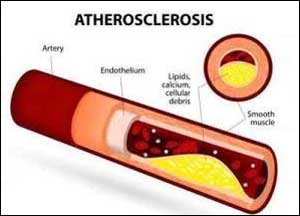- Home
- Editorial
- News
- Practice Guidelines
- Anesthesiology Guidelines
- Cancer Guidelines
- Cardiac Sciences Guidelines
- Critical Care Guidelines
- Dentistry Guidelines
- Dermatology Guidelines
- Diabetes and Endo Guidelines
- Diagnostics Guidelines
- ENT Guidelines
- Featured Practice Guidelines
- Gastroenterology Guidelines
- Geriatrics Guidelines
- Medicine Guidelines
- Nephrology Guidelines
- Neurosciences Guidelines
- Obs and Gynae Guidelines
- Ophthalmology Guidelines
- Orthopaedics Guidelines
- Paediatrics Guidelines
- Psychiatry Guidelines
- Pulmonology Guidelines
- Radiology Guidelines
- Surgery Guidelines
- Urology Guidelines
Study suggests , Soya foods decrease risk of atherosclerosis

Mahdieh Khodarahmi at Nutrition Research Center, at Tabriz University of Medical Sciences, Tabriz, Iran and colleagues have conducted a systematic review and meta-analysis to investigate the effect of soy products intake on serum hs-CRP concentration and found out that-
- Natural soy products may reduce plasma levels of hs-CRP in comparison to other sources of isoflavones.
- The dose of isoflavones seems to be strong predictors of the effect of soya on serum hs-CRP levels.
- The inclusion of soy foods in a western diet might play a curial role in improving inflammation.
The study has appeared in the Journal of Clinical Nutrition. The results of studies in the past about the effect of soy products on serum highly sensitive C-reactive protein (hs-CRP) are inconsistent.
High Sensitivity C-Reactive Protein or HSCRP is useful for assessment of the risk of developing myocardial infarction in patients presenting with acute coronary syndromes and is also useful for assessment of the risk of developing cardiovascular disease or ischemic events in individuals who do not the manifest disease at present. Atherosclerosis is an inflammatory disease and hs-CRP has been endorsed by multiple guidelines as a biomarker of atherosclerotic cardiovascular disease risk.
The researchers searched PubMed, EMBASE, Science Direct, ISI Web of Science, Google Scholar and Cochrane Central Register of Controlled Trials up to December 2016 without language restrictions.
They included thirty-six studies in the meta-analysis which revealed a non-significant reduction in serum hs-CRP concentrations following soy products consumption. Subgroup analyses suggested that natural soya products may reduce plasma levels of CRP by -0.18 mg/L in comparison to other sources of isoflavones (soya extracts, supplements). Moreover, the effect was stronger in among subjects with baseline hs-CRP concentrations of less than 2.52 mg/L, -0.15 (95% CI: -0.27 to -0.02; I2: 34.6). A meta-regression analysis revealed that dosage of isoflavones seems to be strong predictors of the effect of soya on serum hs-CRP levels.
Findings suggested no strong evidence regarding the beneficial impact of soy products consumption on blood hs-CRP concentrations but natural Soya may play a curial role in improving inflammation and reducing the risk of atherosclerosis.

Disclaimer: This site is primarily intended for healthcare professionals. Any content/information on this website does not replace the advice of medical and/or health professionals and should not be construed as medical/diagnostic advice/endorsement or prescription. Use of this site is subject to our terms of use, privacy policy, advertisement policy. © 2020 Minerva Medical Treatment Pvt Ltd